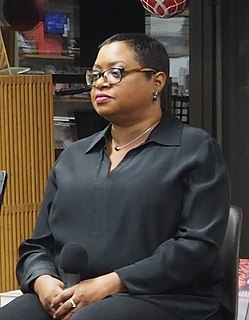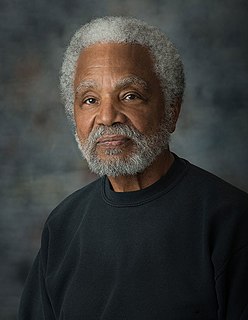A Quote by John Lewis
Some people think that [it was] Martin Luther King Jr.'s idea to have a boycott. It was a black woman, a teacher, who said we should boycott the buses. You had people like Fannie Lou Hamer; Delta, Mississippi.
Related Quotes
I still hear people say that I should not be talking about the rights of lesbian and gay people and I should stick to the issue of racial justice. But I hasten to remind them that Martin Luther King Jr. said, 'Injustice anywhere is a threat to justice everywhere.' I appeal to everyone who believes in Martin Luther King Jr.'s dream to make room at the table of brother- and sisterhood for lesbian and gay people.
All talks about legacies of white supremacy must be tied to empowering the lives of poor and working people as a whole. The black agenda - from Frederick Douglas to A. Philip Randolph, Martin Luther King Jr, Fannie Lou Hammer to Ella Baker - has always been tied to race talk inseparable from expanding possibilities of democracy, expanding empowerment of everyday people.
I was just an infant when [Fannie Lou] Hamer spoke - barley even awake in the world. But here she was, pressing the Democratic Party to refuse to recognize the all-white Mississippi delegation, because obviously there was no way Mississippi could have an all-white delegation. Black people had been kept from registering through violence and intimidation. She had experienced that violence herself and was there to speak about it and to insist the delegation of the Mississippi Freedom Democratic Party be recognized instead.
Every now and then I think about my own death, and I think about my own funeral. [...] Every now and then I ask myself, 'What is it that I would want said?' I'd like somebody to mention that day, that Martin Luther King, Jr., tried to give his life serving others. I'd like for somebody to say that day, that Martin Luther King, Jr., tried to love somebody.
Martin Luther King really was a safety valve for white people. Any time it appeared that the black community was on the verge of really doing what we ought to do based on having been attacked, they put Martin Luther King on television. He was always saying, "We must use nonviolence. We must overcome hate with love." White people loved that. That's why they gave him a Nobel Prize. But when Martin Luther King started condemning the Vietnam War, that's when white people turned against him.
The goal of Martin Luther King is to get the Negroes to forgive the people the people who have brutalized them for four hundred years, by lulling them to sleep and making them forget what those whites have done to them, but the masses of black people today don't go for what Martin Luther King is putting down.
We [black people] don't respect our elders. Besides artists, we don't respect Frederick Douglass. We don't respect Martin Luther King. You look at every Martin Luther King Boulevard out here, and it's a crack block. That's not because of white people. That's because of black leadership. We just have that problem, and it's something that I am going to spend the rest of my life trying to conquer.
The anniversary of the Montgomery boycott was being celebrated, and the handbill that was out, and all whatever literature that was circulated, didn't say practically anything about movement or what the movement stood for, what it had done, or anything, but was simply adulation of the leader, you know, [Martin Luther] King.
I remember back in the 1960s - late '50s, really - reading a comic book called 'Martin Luther King Jr. and the Montgomery Story.' Fourteen pages. It sold for 10 cents. And this little book inspired me to attend non-violence workshops, to study about Gandhi, about Thoreau, to study Martin Luther King, Jr., to study civil disobedience.
We like to think of the '60s as Martin Luther King, Jr. and Malcolm X and a little bit of friction - no, there were all of these different groups. There was the Student Nonviolent Coordinating Committee (SNCC), the Black Panthers, Martin and Malcolm, but also the Whitney Youngs of the world, the Bayard Rustins of the world.
































